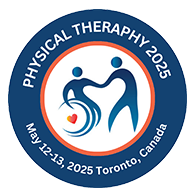The "Physiotherapy in Sports-Related Injuries" track focuses on the essential role of physiotherapy in the prevention, assessment, and rehabilitation of injuries sustained in athletic contexts. Researchers are invited to submit abstracts that explore evidence-based interventions, rehabilitation protocols, and innovative treatment strategies tailored for sports injuries.
Key areas of interest include the efficacy of specific therapeutic modalities, injury prevention strategies, and the integration of functional rehabilitation to enhance performance and reduce the risk of re-injury. This track also encourages research on the psychological aspects of recovery, emphasizing the importance of mental resilience in athletes.
By sharing their findings, researchers will contribute to a comprehensive understanding of the physiotherapeutic approaches that support athletes throughout their recovery journey. This track aims to foster collaboration among physiotherapists, sports scientists, and coaches to improve rehabilitation practices and enhance athlete health and performance.

